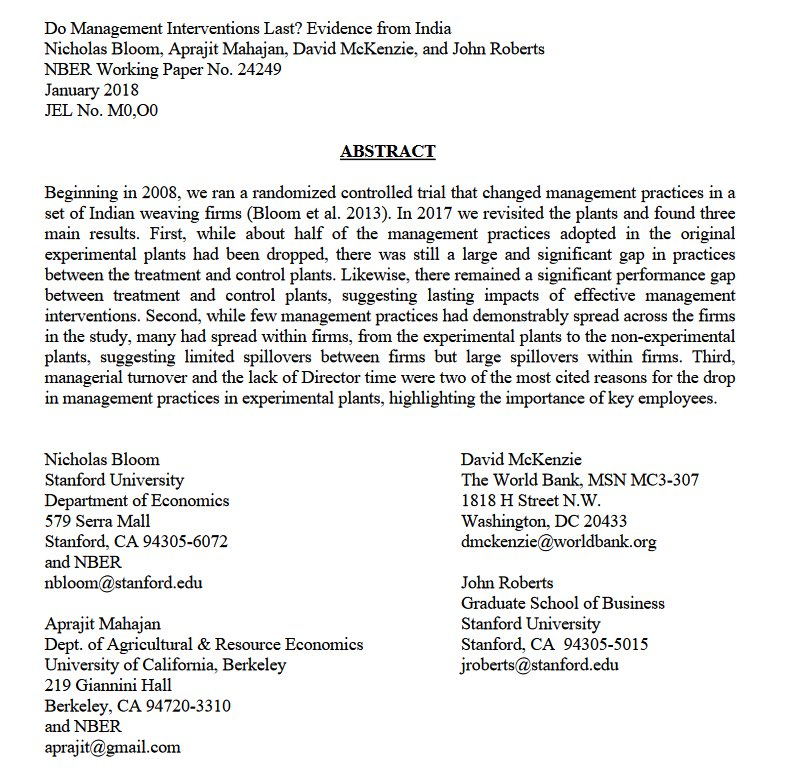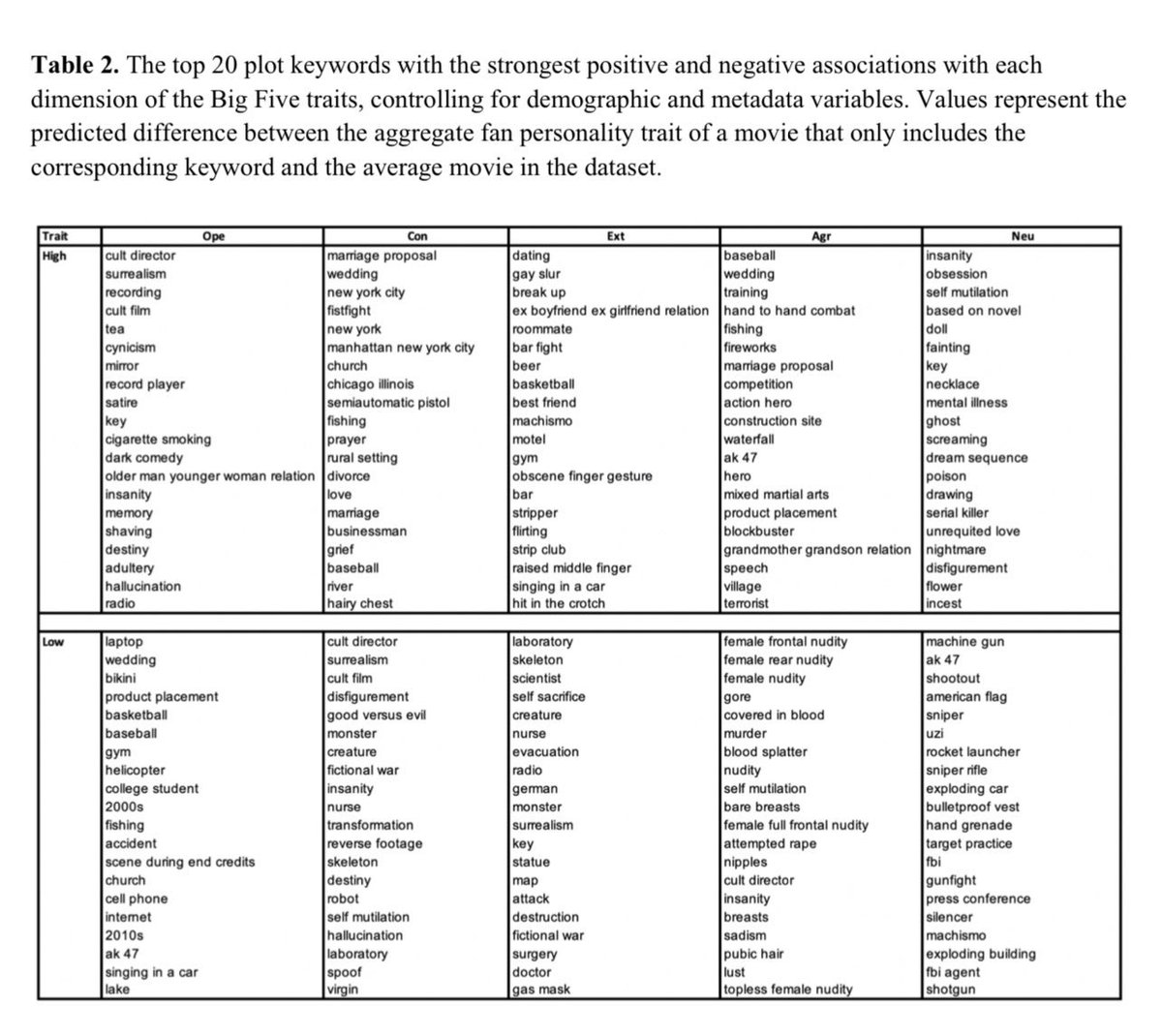
Management is like a technology that makes companies better, and the source of US business success. 11,000 interviews in 34 countries shows that over 30% of the productivity advantage of US firms comes from better management. But management can be learned! hbs.edu/ris/Publicatio… 





Improving management has a long-term impact. A decade ago, teams of consultants introduced basic management practices to some Indian plants & left others as a control. The practices boosted performance then. A followup study shows about half the effects persist 10 years later! 



Management training boosts startups success, too! Learning about how to conduct experiments, manage teams, pitch ideas & network all increase growth for startup companies in controlled experiments conducted around the world. 



And even simple business skills makes a big difference for small business owners. This study used an experiment with 2 million small Chinese online retail businesses, who were given basic skills training. Those who got training had better revenue & growth. scholar.harvard.edu/files/zsun/fil… 



• • •
Missing some Tweet in this thread? You can try to
force a refresh


















